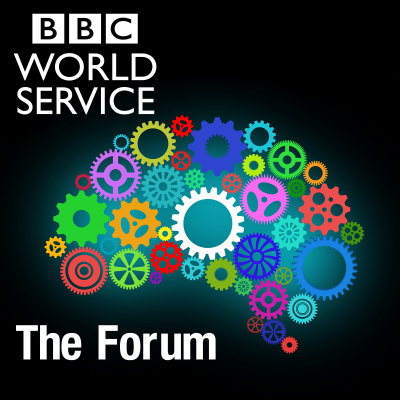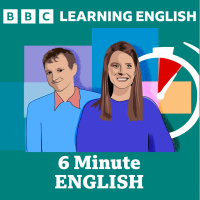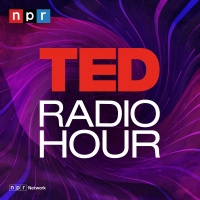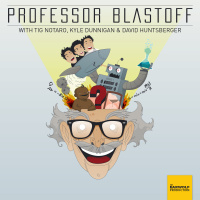Sinopse
A world of ideas
Episódios
-
Adventures with dentures: The story of dentistry
18/03/2021 Duração: 39minUntil the eighteenth century there were no professional dentists. The only way to deal with a serious case of toothache was to call on the services of blacksmiths, travelling showmen or so-called barber-surgeons, all of whom had a sideline in tooth extraction. But in 1728, French physician Pierre Fauchard published the first complete scientific description of dentistry and he is credited as being “the father of modern dentistry”. His book, Le Chirurgien Dentiste or The Surgeon Dentist, was translated into several languages.Joining Rajan Datar to discuss the painful and sometimes gruesome history of humans and their teeth are Dr. Scott Swank of the National Museum of Dentistry in Baltimore, US; Rachel Bairsto, Head of Museum Services at the British Dental Association and Professor Dominik Gross of RWTH Aachen University in Germany.[Image: Detail from Tearer of Teeth or The Tooth Puller by David Ryjckaert III (1612-1661). Credit: David Dyjckaert III / Buyenlarge / Getty Images]
-
BR Ambedkar: The Dalit hero of India
11/03/2021 Duração: 39minEducate, Agitate, Organise. This was the motto of the Indian scholar BR Ambedkar who led an extraordinary life of activism and achievement. It put him in conflict with many other political forces in his native country, such as the Indian National Congress and Mahatma Gandhi. In India itself, Ambedkar's legacy is widely respected but in other countries he is not so well known. And yet, Ambedkar was not only a leading intellectual of his day, brilliant orator, lawyer, successful politician and an unmatched champion of those suffering the harshest discrimination: he was also someone who rose from a Dalit background to being put in charge of writing the first constitution of independent India. The Dalits are the lowest of the low in the Indian social hierarchy, often considered as being below the lowest caste.To tell Ambedkar's story Rajan Datar is joined by three distinguished Ambedkar scholars: Sunil Khilnani, professor of politics and history at Ashoka University and author of Incarnations: India in Fifty Live
-
Making waves: the history of swimming
04/03/2021 Duração: 40minCommon to many cultures across the world, swimming appears on the surface to be a benign leisure activity. But in fact it has much to tell us about such things as the development of societies, our bodies and minds, and our relationship to our ancestors and the natural world.For the Ancient Greeks and Romans, swimming was essential for instilling discipline, as a necessary skill for warriors, and to promote wellbeing. In West Africa where water had spiritual significance, communities there placed great importance on learning to swim from an early age. Their aquatic skills surprised the early colonialists, who then targeted divers to help them plunder shipwrecks when they were trafficked to the New World. Today however African American children are almost six times more likely to drown than their white counterparts as a consequence of historic racial segregation, according to research by the US Centers for Disease Control.Rajan Datar is joined Professor Kevin Dawson from the University of California Merced, aut
-
Abraham Maslow’s psychology of human needs
25/02/2021 Duração: 39minMany students of psychology, business, nursing and other disciplines are taught about "Maslow's pyramid of human needs", a diagram that shows a progression from our basic needs, such as food and shelter, to higher, social needs and, eventually, to striving for often intangible life goals and fulfilment. The pyramid is an iconic image, yet Abraham Maslow, a leading humanistic psychologist of the 20th century, didn't actually create it. Moreover, his writings are much more sophisticated and perceptive than the diagram suggests. So where did this confusion come from and why didn't Maslow disown the pyramid? How should we understand Maslow's hierarchy of human needs? Why has it proved so useful in so many different disciplines? And in what way is it relevant to how we live today?These are some of the questions that Bridget Kendall explores with Jessica Grogan from University of Texas at Austin, author of Encountering America, a history of humanistic psychology; David Baker, emeritus professor of psychology and fo
-
The Kalevala: the Finnish epic that inspired a nation
18/02/2021 Duração: 39minWhen the Kalevala was published in 1835, Finland had a distinct cultural and linguistic identity but it had always been part of either the Swedish or the Russian empire. Neither did Finland have much of a literary tradition, but as the 19th-century progressed the Kalevala took on a symbolic role as the representation of a Finnish identity that fed into the movement for Finnish independence. Rooted in the folk culture of the Karelia region, a travelling doctor shaped the song texts into a story in a way which is still being debated today.Joining Bridget Kendall to discuss how the Kalevala underscored the search for Finnish national identity are Dr Niina Hämäläinen, executive director of the Kalevala Society in Helsinki; Professor Tom DuBois from the University of Wisconsin-Madison, the author of Finnish Folk Poetry and the Kalevala; and the award-winning British musician, playwright and storyteller, Nick Hennessey. Produced by Fiona Clampin for the BBC World Service.[Image: The Defense of the Sampo, 1896. Art
-
Sister Juana, a great mind of Mexico
11/02/2021 Duração: 39minSister Juana Ines de la Cruz is celebrated today as one of the finest poets in the history of Mexico. She was not just a creative and intellectual force but also a campaigner for women’s education and someone not afraid to challenge male hypocrisy. The colonial 17th-century society in which she lived was very patriarchal so, not surprisingly, her views brought her into conflict with the men in power. Rajan Datar looks at key episodes in Sister Juana’s life and examines the passion and ingenuity in her poetry and plays with the help of Alicia Gaspar de Alba, Professor at University of California Los Angeles and a writer whose novels include Sor Juana’s Second Dream; Dr. Amy Fuller, Senior Lecturer at Nottingham Trent University, specialist in early modern Spain and Mexico and author of Between Two Worlds, a monograph on Sister Juana's plays; and Rosa Perelmuter, Professor of Romance Studies at University of North Carolina at Chapel Hill. The reader is Pepa Duarte.[Image: A painting of Sister Juana by the Mexic
-
Mermaids: Tales from the deep
04/02/2021 Duração: 38minWe delve into the watery depths of sea creature folklore, with a round-the-world tour of different variations on the concept of mermaids – from the Sirens of Greek mythology to the Selkies or Seal Folk of Scottish legend, and water spirits known as Mami Water, which are venerated in parts of Africa and the Americas. Not forgetting the famous fairy tale, The Little Mermaid, which has captivated the imagination ever since its publication in 1837 and was popularised by Disney in the 1980s.Joining Bridget Kendall to discuss what these ancient stories can tell us are Cristina Bacchilega of the University of Hawaii, co-editor of The Penguin Book of Mermaids; British writer, Marcelle Mateki Akita, who has written a book for children called Fatama and Mami Wata's Secret; and Lynn Barbour, founder and Arts Director of the Orkney Folklore and Storytelling Centre in the Orkney Islands in Scotland.Produced by Jo Impey for the BBC World Service.[Image: Detail from Fisherman and Mermaids in the Blue Grotto on Capri by Herm
-
Eleusinian Mysteries: Secret ceremonies promising happiness
28/01/2021 Duração: 39minIn ancient Greece, thousands of people flocked each year to join the religious rites known as the Eleusinian Mysteries. Based on the cult of the goddess of fertility Demeter and her daughter Persephone, the Mysteries were for many a profoundly moving and life-changing experience. People from all over the Greek world and beyond travelled to Eleusis for at least 800 years and the ceremonies remained a highlight of the Athenian calendar throughout that time. But what really went on in the great hall of the sanctuary at Eleusis? Why did the organisers deem it necessary to issue a strict injunction against divulging what actually took place - and what happened to some of those who broke that rule? These are some of the questions Bridget Kendall discusses with Christy Constantakopoulou, professor in ancient history and classics at Birkbeck College, London; Esther Eidinow, professor of ancient history at Bristol University; Dr. Philippe Michel Matthey who lectures about ancient religions at Geneva University; and Dr
-
Toussaint L’Ouverture: Hero of the Haitian slave rebellion
21/01/2021 Duração: 39minLate 18th-Century Saint Domingue in the Caribbean – now known as Haiti – was one of the richest countries in the world. Known as ‘the pearl of the Antilles’, its wealth was built almost entirely on slavery. Around half a million enslaved Africans were transported to the French colony to work on the sugar plantations. Toussaint L’Ouverture was destined to see out his days within this brutal system, but his skills as a negotiator and communicator saw him rise to the forefront of the resistance movement on the island. A wily and charismatic operator, he galvanised his fellow countrymen and women to lead history’s first and only successful slave uprising. Diverging from French colonial rule brought him to the attention of Napoleon Bonaparte, who sent a large fleet to re-establish slavery on Saint Domingue. The expedition ended with Toussaint’s capture and exile to France, where he died in a cold prison cell in 1803. But his generals meanwhile carried on the struggle to uphold Toussaint’s opposition to slavery,
-
Olympe de Gouges: France’s forgotten revolutionary heroine
14/01/2021 Duração: 40minShe fought to give women the right to divorce and campaigned on behalf of children born out of wedlock. But in late 18th century France, her radical thinking proved too much for her contemporaries in the French revolution. She insisted women should be allowed to speak out, and she was executed at the guillotine for doing just that. For nearly two centuries her story was largely forgotten, until she was championed by modern-day French feminists, who called for her to be given pride of place in the pantheon of France’s national heroes.Joining Bridget Kendall to discuss the life of the French political activist and playwright Olympe de Gouges are: French philosopher of feminist thought, Geneviève Fraisse; Professor Catriona Seth of the University of Oxford; and British-French playwright and translator, Clarissa Palmer.Produced by Jo Impey for the BBC World Service.Image: Portrait of Olympe de Gouges (1748-1793) by Anonymous Image credit: Christophel Fine Art/Universal Images Group via Getty Images
-
Alexandre Yersin and the race to fight the plague
07/01/2021 Duração: 39minWhen Alexandre Yersin discovered one of the most lethal bacteria in human history, the tiny bacillus of the plague that over the centuries had killed tens of millions of people, he earned his place in the history books. Working in a straw hut in Hong Kong, armed with just a microscope, Yersin’s methodical mind worked out within just a few days where in human body to look for the plague bacteria. A much bigger and better-equipped Japanese team, competing with Yersin, came away empty-handed. So who was Alexandre Yersin? Why did this pioneering Swiss scientist spend most of his life in Vietnam? And why did it take decades fully to credit Yersin with the discovery of the microorganism that now bears his name, Yersinia pestis?These are some of the questions Bridget Kendall discusses with film director Stephane Kleeb, who made a documentary about Yersin; Professor Maxime Schwartz, medical historian and former director of the Pasteur Institute in France; and Dr. Mary Augusta Brazelton from Cambridge University whose
-
Famous hats in history
31/12/2020 Duração: 39minThere have been so many, probably hundreds, different styles and types of hat in history that a question inevitably arises: why? Why did something that began as a simple protection against inclement weather take on such varied forms and social meanings? Bridget Kendall and guests explore not just how hats were made, and by whom, but also how their function has evolved over centuries and across cultures. By focusing on just five distinct hat types, they sketch out a brief social history of headwear. Bridget is joined by Dr. Drake Stutesman, an adjunct professor at New York University, and the author of the book Hat: Origins, Language, Style; Dr. Ulinka Rublack, professor of Early Modern European History at Cambridge University with a particular interest in Renaissance fashion; and Dr. Kirill Babaev, a cultural anthropologist and writer from the Russian Academy of Sciences and founder of the World of Hat museum in Riga, Latvia.[Image: Model Carre Otis wearing a wide-brimmed black straw hat with a print of lemo
-
Mugham: the sound of Azerbaijan
24/12/2020 Duração: 39minAzerbaijan’s strategic location along the old Silk Road and its wealth of natural resources has made it a prime target for warring empires over centuries. The conquests and the invasions by Turkic and Persian peoples find echoes in the traditional art music of Azerbaijan known as mugham. The influence of the Russian and then Soviet empire also brought change for mugham, the effects of which are still debated today. Mugham is characterised by a large degree of improvisation, but musicians learn for years from mugham masters to acquire the skills which allow them to extemporise within a strict framework. It’s no surprise to learn that in the 20th century, mugham fused with that other great improvisatory music – jazz. With the help of musical examples, Rajan Datar and guests will explore how mugham works and the instruments such as the tar and the kamancha that give this music its unique sound.Joining Rajan will be ethnomusicologist and tar player Dr Polina Dessiatnitchenko who’s writing a book on mugham in po
-
The Kingdom of Aksum: Africa's trading empire
17/12/2020 Duração: 39minAt its height, the Aksumite Empire extended across the northern Ethiopian and Eritrean highlands, and even included parts of Sudan, Somalia and modern-day Yemen. From the first century BC to the seventh or eighth centuries AD it was one of the most important trading hubs in north-east Africa. It was also one of the earliest states in the world to adopt Christianity. In fact the Persian prophet Mani named the Aksumite Empire as one of the “four great kingdoms on Earth” together with Persia, Rome and China. But despite its power and reputation, we’re only now beginning to understand more about the lives of the people who lived there.Joining Bridget Kendall to discuss the Aksumite Empire and its legacy are Helina Solomon Woldekiros, Assistant Professor of Archaeology at Washington University in St Louis, Missouri; Felege-Selam Solomon Yirga, Assistant Professor of History at the University of Tennessee; and Dr. Niall Finneran, Reader in Historical Archaeology and Heritage Studies at the University of Winchester
-
Umm Kulthum: Egypt’s singing superstar
10/12/2020 Duração: 39minUmm Kulthum’s powerful voice and talent for communicating poetry was spotted early, when she accompanied her family to perform at weddings and special occasions. It wasn’t long before she was performing in the elite salons of early 20th-century Cairo, although her father dressed her as a boy to protect her from any unwelcome interactions with strangers.In the Egyptian capital she quickly associated herself with the most talented musicians of the day, and from then on she never looked back. She explored the major Arabic song forms of the period, collaborating with composers and poets. She dabbled in film, negotiated record deals, and when public service broadcasting began in the 1930s, she secured herself a monthly slot on national radio. In awe of her talent and mesmerising presence, the Arab world practically came to a standstill whenever she was heard on the airwaves.Joining Bridget Kendall to explore Umm Kulthum’s life are Virginia Danielson, author of The Voice of Egypt: Umm Kulthum, Arabic Song and Egy
-
Alexandre Dumas: The man behind the Musketeers
03/12/2020 Duração: 39minThe word 'swashbuckling' is often used to describe the novels of Alexandre Dumas the Elder, the creator of D’Artagnan and the Three Musketeers, the Count of Monte Cristo and the Man in the Iron Mask. But Dumas himself led a life as colourful as many of his gallery of rogues, villains and heroes. Having grown up in poverty, he found employment in the household of a future king of France. He was prolific on the page and pretty active away from it. At first with a series of highly successful plays and then with serialised novels, his production house churned out hundreds of thousands of pages of gripping narrative. He had pet projects like building a mansion and theatre, he had countless mistresses and he frequently found himself in legal disputes and on the run from debt collectors. In the 150th anniversary year of Dumas’ death Rajan Datar explores the writer's life and work with Claudie Bernard, professor of French Literature, Thought and Culture at New York University; Daniel Desormeaux, professor of Arts and
-
Unlocking the mysteries of cuneiform tablets
26/11/2020 Duração: 36minCuneiform is an ancient writing system distinguished by wedge-shaped marks made into clay. It developed over 5,000 years ago in Ancient Mesopotamia. At its height it was used to write languages across the ancient Middle East, from Iran to Syria to Anatolia in Turkey. But cuneiform writing fell out of use about 2,000 years ago in favour of alphabetic scripts. When scholars in the 19th century finally managed to redecipher it, they discovered fascinating insights into the culture and rituals of people living in the ancient Middle East, unlocking texts that have changed our understanding of history, including The Epic of Gilgamesh, the Code of Hammurabi and The Amarna Letters of Ancient Egypt. And cuneiform has even seen something of a revival in modern-day Iraqi visual culture. Joining Rajan Datar to discuss cuneiform script are Professor Eleanor Robson of University College London, Dr Mark Weeden of SOAS, University of London and Ahmed Naji, author of 'Under The Palm Trees: Modern Iraqi Art with Mohamed Maki
-
First impressions: The printing press
19/11/2020 Duração: 39minWhen the fifteenth century German entrepreneur Johannes Gutenberg pioneered the printing press, he made an indelible mark on the history of communication. Here was a way to print pages in high quality and high quantities, using methods more efficient than had ever been seen before.Rajan Datar and guests explore the story of how the printing press was born, and how it changed our world - from the birth of the modern book to the rise of the information society, and the transformation of fields including scholarship and religion.Rajan is joined by art historian Hala Auji, publisher Michael Bhaskar, scholar Cristina Dondi and the writer John Man.[Image: A bas-relief of Johannes Gutenberg checking his work while his assistant turns the press, c.1450. Credit: by Hulton Archive/Getty Images]
-
The woman whose cells changed medical history
12/11/2020 Duração: 39minThe story of a young mother who unwittingly left behind a vast medical legacy. Henrietta Lacks died of cancer in Baltimore in 1951 and though she never gave consent to her tissue being used for research, doctors at the time found that her unusually virulent tumour had extraordinary properties. As her cells multiplied in labs around the world, they helped make possible all sorts of medical breakthroughs, from the polio vaccine to cancer drugs and IVF treatment. But it took the Lacks family decades to discover what was going on, and the story raises questions for all of us – about medical ethics, institutional racism, and our right to privacy.Joining Bridget Kendall to discuss this remarkable story are: Henrietta Lacks' grandson David Lacks Jnr who's on the board of the HeLa Genome Access Working Group; the award-winning science writer, Rebecca Skloot, whose book The Immortal Life of Henrietta Lacks brought the story to the world's attention a decade ago; and Sir John Burn, Professor of Clinical Genetics at New
-
Comenius, a pioneer of lifelong learning
05/11/2020 Duração: 39minTeaching not by rote but through play? That's credited to the 17th-century Czech pastor and thinker called Jan Amos Comenius. Splitting schoolchildren up into year groups? That's Comenius. Universal education for all, rich and poor? That's down to him too. Nearly four centuries ago, Comenius came up with principles of modern education but they were only implemented hundreds of years after his death. That these ideas are now so widely accepted obscures the fact that they were ground-breaking - indeed too radical - in his day. Comenius lived through turbulent times: the devastating Thirty Year served as the backdrop to much of his life. He was suffered personal tragedy during the bitter battles between Protestants and Catholics in Europe and spent most of his adult life in exile. Joining Rajan Datar to analyse the contribution to modern thinking made by Comenius in this, the 350th anniversary year of his death are Dr. Vladimir Urbanek, Head of the Department of Comenius' Studies and Early Modern Intellectual H









